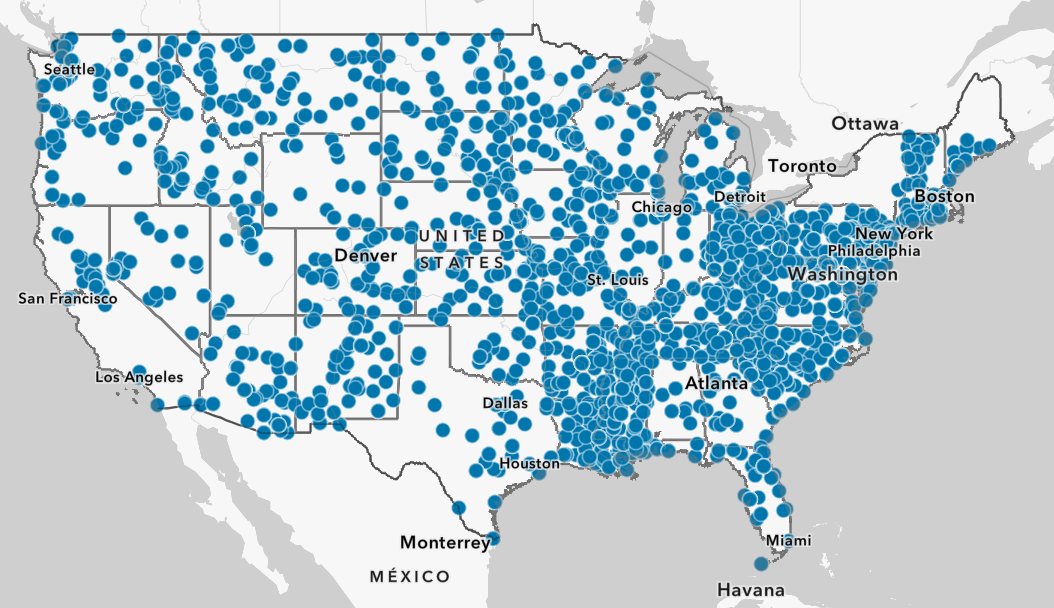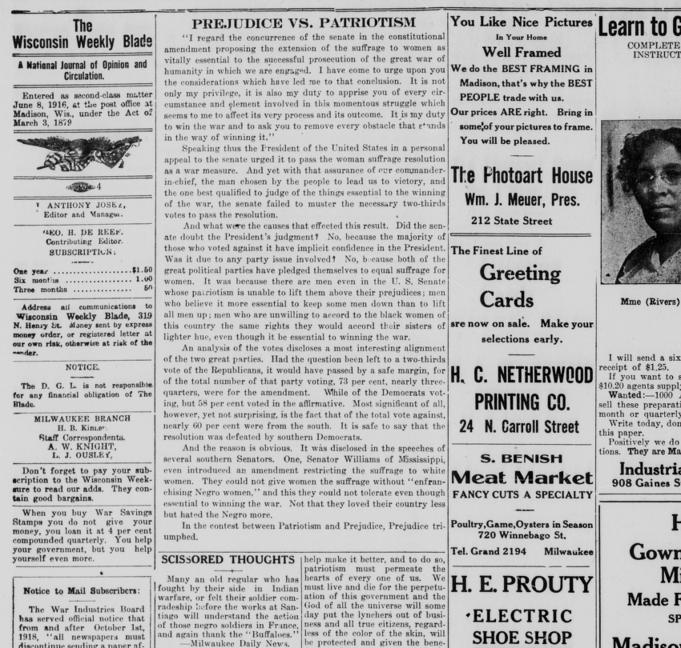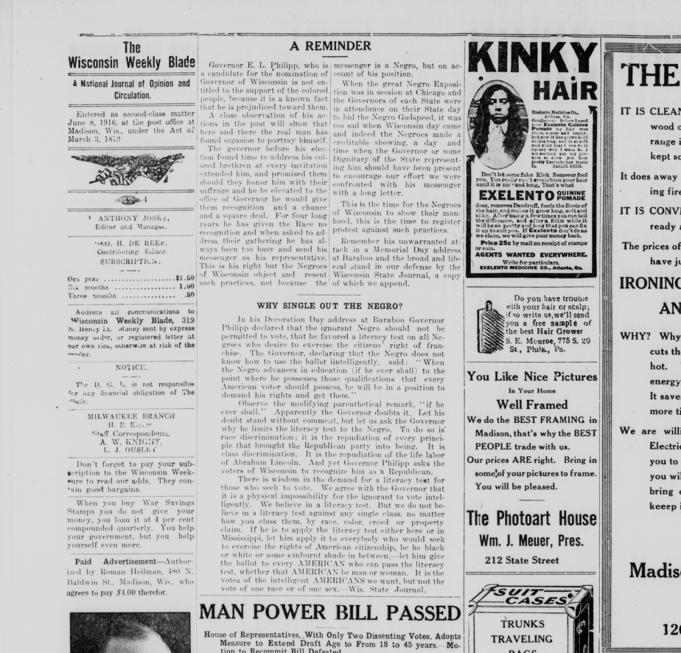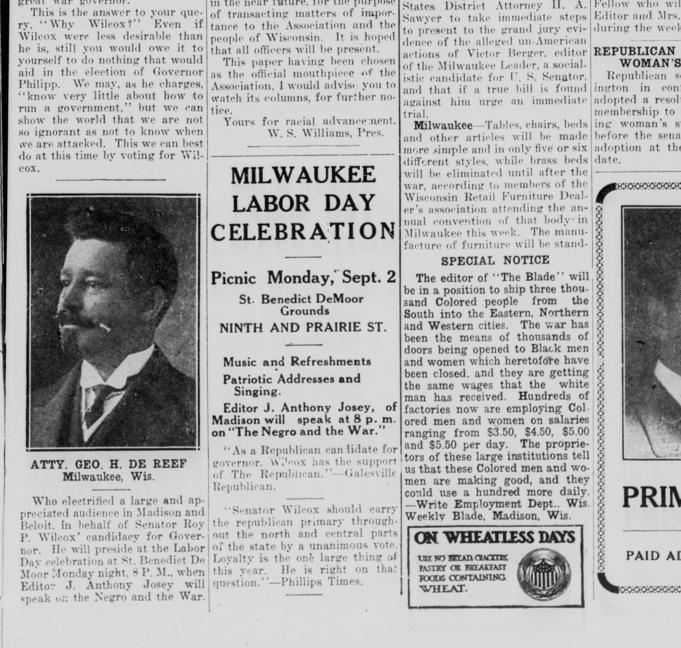By: Joseph Skotzke
The New Chronicling America Beta
Anyone who is particularly savvy in navigating the Library’s collections will know about the excellent resource that is Chronicling America. This resource, which houses over 4,000 newspapers from all states and territories is a staple when doing any deep dive in inquiry. However, this collection, previously hosted on chroniclingamerica.loc.gov, is now undergoing some major changes. While this resource can still be accessed in the traditional way, it won’t be much longer that Chronicling America will be hosted separately from the Library's digital collections.
The beta for Chronicling America's new integration released in September of 2023, and efforts have gone to slowly transition the new locale as the primary host for the collection. The new page seeks to add more functionality to the collection. These changes include:
- the ability to search for Chronicling America material from the Library’s digital collections page - this means that Chronicling America results will be able to appear with any loc.gov search.
- the ability to separate newspapers by ethnicity. This helps find the alternate perspectives on many events in American history.
- article collectionsrelating to specific national topics. These article collections include a brief explanation of the event, as well as an easy understandable basic timeline. A chosen topic also provides researchers with a list of key words that they might use in navigating the collection to find articles of their own.
For those that aren't ready to make the change - don't worry! The original site will continue to be supported until further notice. However, as of March 1st, 2024, new material is no longer be uploaded to the legacy site. Instead, all new uploads will be added to the digital collections of the loc.gov site instead. When the transition from the legacy site to their new location is completed, all links which lead to papers, volumes, or even specific pages will redirect to their corresponding page in the new location.This means that for those who have spent years gathering links to use in lesson plans, distributable materials, or for thier own collection, these links will continue to work in perpitutiy.
Exploring Hometowns with Chronicling America
I think it's a rite of passage that when people discover resource hubs like the Library's digital archives, they automatically seek out things that are familiar to them. Oftentimes, this is family, local historic events, or personal interests. In a classroom setting, this can be difficult to navigate. Many families are diverse in their structure and history, many of which have extremely limited documentation. I mean, there is certainly a scarcity of Skotzkes who have changed American history (for now). Too, interests are variable - many of the activities which interest students today weren't even invented many years ago. However, there is always one thing which almost always remains tried and true: hometowns. To test the functionalities of the new beta, I recently did a deep dive of this very idea.
Now, unfortunately, not every newspaper is made equal. While my sleepy, small hometown of Stoughton, WI has its own paper, the Courier Hub, it is not one of the thousands that are housed in Chronicling America's over 4,000 titles. Though its existence lies elsewhere, there are many things that I can do to still find items related to Stoughton’s fascinating history.
The first thing that I must do is see what newspapers are nearby that may give the mention of things happening around my hometown. I can do this a couple of ways. The first way is by checking out the complete list of newspapers that are housed within the Chronicling America collection. While I could spend hours poring through this collection to find what I need, I much more strongly recommend utilizing the interactive map of archived papers, which shows a map that easily allows you to see the various locations across the country where chronicled newspapers originate.
The little, red star is my hometown. From the map I can see that there are two newspapers that are within Dane County, the county in which Stoughton lies, The Wisconsin Tobacco Reporter in Edgerton and the Wisconsin Weekly Blade in Madison. The names of these papers alone already begin to raise questions.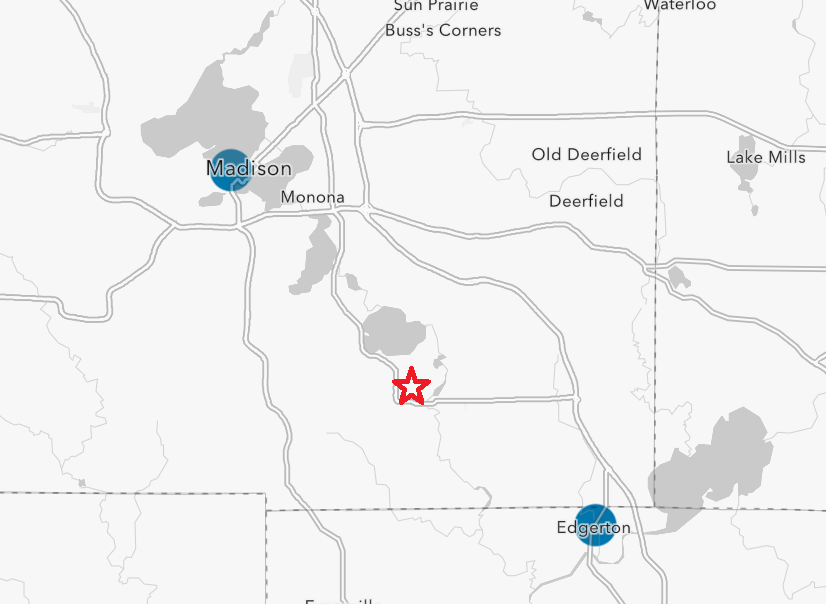
By clicking on the dots on the interactive map, I was able to find more information about both papers, which give me a little bit more of an idea which one might be more relevant for specific topics. The Tobacco Reporter is much more focused on Wisconsin's growing business and industry, whereas the Wisconsin Weekly Blade was the first African-American newspaper published in Madison. Depending on my lens of research, one paper is likely going to be more useful than the other.
These pages will also tell you the dates that Chronicling America has recorded, as well as the front pages of all editions of that paper. The Wisconsin Weekly Blade, for example, only is cataloged between 1916 and 1925, so its window into the past is very brief. However, this time period is a treasure trove to explore. Within, a researcher could likely find information about Dane County's Black population's involvement in World War I, perspectives about the civil rights movement, advertisement for groups like the NAACP, or commentary on significant political events like the Tusla Race Riots.
Refining Searches:
Now that I have a better idea of what the papers are about, I can begin my inquiry by using the “advanced search” tool. I decide to look a little more into the Wisconsin Weekly Blade.
- First, I limited the search to only the state of Wisconsin, selecting the Wisconsin Weekly Blade as my newspaper of choice. I don’t worry about the dates because the newspaper’s run time is so short.
- Next I want to limit the search terms, as there are over 600 editions of this paper that have been chronicled. In 1920, I know that the 19th amendment was ratified, but many Black Americans were still not able to vote. I need to generate a list of words in the box “with any of the words,” that might relate to this amendment. I generate the list: “vote, literacy, amendment, polls, suffrage, ballot,” as these might yield results related to my topic of interest.
- This returns 216 results, which is still too many, but small enough where I begin exploring on my own. I find three particularly interesting pages.
There is an abundance to study on these three pages alone! The first has an excellent piece titled "Prejudice vs. Patriotism," which presents these two concepts as aspects of American society that seem to be at war with another. The second has an interesting "special notice" at the bottom, which marks job opportunities being offered to Black Americans with wages matching those earned by Whites thanks to the scarcity of labor due to World War I. The third contains a discussion on the use of literacy tests in national election. Surprisingly, this author supports the use of literacy tests to ensure intelligent and informed voters. However, he demands that these literacy tests should be administered equally between every race and gender. There is so much more to highlight within these pages alone that offer insights to what has happening just a stone's throw from my hometown.
I find that many of these conversations echo those happening today. There is a lot to learn from delving into Chronicling America, considering that those who wrote in these papers wrote to be heard. This would be an excellent resource to pair with students when teaching them researching skills, as it helps to add relevancy and primary source analysis skills. Too, there are many interesting things to see - like advertisements, names that students will recognize, or even mentions of local events that students may recognize! Students can also begin asking questions using the Library's Primary Anaylsis Source tool! Consider using Chronicling America as the focus for a future project that involves primary sources; you might be surprised by what you find.
